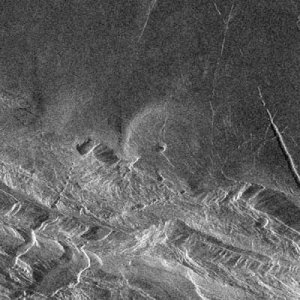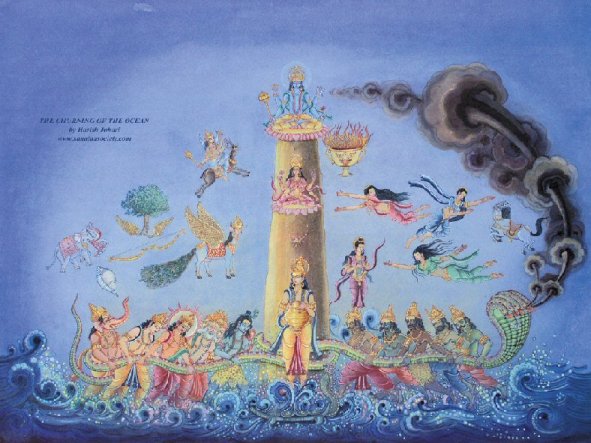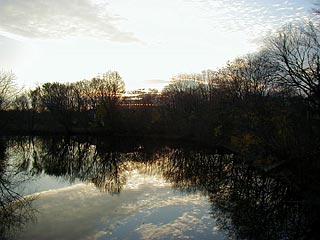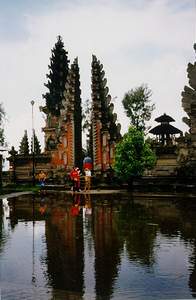The White Moon Gallery Presents...
Danu
Indo-European Goddess of Primordial Waters
By N.
Praise to Danu
“Danu rolls in the midst of never-ceasing currents flowing without a rest forever onward”1
The Rig-Veda translated by Ralph T.H. Griffith, 1889. Peter Myers, January 15, 2002

Danu
She is a river,
Her blood flows down across the Land.
Her whispering lips birth her names into the void:
Danu
Danand
Don
Listen to the voice:
Deep as a well that vanishes into the darkness, echoing with secret desires
With sighs that bring both pleasure and pain,
Washing away death with life.
In her arms she carries all lives into the cradle of the Earth:
Embracing our bones,
Like shining pieces of stone.

Danu (DAH-noo) is most commonly known as the Mother of the Celtic Gods, however her presence is also felt in Hindu mythology. She is the Goddess of rivers, giving her name to dozens of rivers such as the Danube and the Don. Even a mountain on the face of Venus has been named after this great Goddess.

Danu Mountains on the planet Venus
www.NASA.gov
In Irish, the name means “swift flowing.” The root “dan” means “knowledge” in Gaelic. In Welsh “dan-“ means “low ground” or “moist earth.” The name Danu seems cognate with the Sanskrit, “Dana” which means “waters of heaven.” In Hindu, Danu means “unknown.”
In Celtic Mythology, the Goddess Danu was the mother Goddess of the Tuatha Dé Danann (The Tribes of Danu). The Hindu Goddess Danu appears in the Vedic story "The Churning of the Oceans," as the goddess of the primordial waters of creation.

The Churning of the Ocean
www.sanatansociety.com
In each culture, Danu is the principle of birth and beginnings, of generation and fertility. Danu is the prime mover, she who came before everything else. As an aspect of the Great-Mother, she encompasses both light and dark, both giving and receiving back. She is enfolding darkness and brilliant flashes of light. She is the coldness of the stones in a river, and warmth of the sun. She is every color, every smell, and every texture… at one time. She is distant and she is close. She is young and she is old. She shifts like the currents in a river.
Danu is a goddess both famous and obscure. Famous, because her name appears in so many place-names and texts. Obscure, because no image or narrative of her survives. This dictomy suits the Goddess, who is both the known and the unknown.

Correspondences
Traditional power: know for bestowing luck and good wishes and finding treasure; often the patron or pirates or treasure hunters
Color: green, blue, silver, and black
Stones: any river stone
Chakra: 2nd—womb chakra
Ritual Energies: matriarchal strength, transformation, manifestation, compassion, spiritual guidance
Symbol: black cauldron filled with water
Animals: snake, fish

Origin & History of Danu
Mythologies: An Ancient Indo-European Mother Goddess
The Tuatha De Danann (The Tribes of Goddess Danu)
To the Celts, Danu is a river goddess. It is thought that the Celtic peoples originated in the Danube River region and from there expanded throughout Europe at the start of the 1st century bc, hence their title as the “Tuatha de Danann.”
Danu’s children, upon arrive in Ireland have to struggle against their enemies, the evil Fomorians, whose own “Mother Goddess” is Domnu. Significantly, Domnu not only means “the world” but “the depths” of the earth.
Irish epics contain many episodes of the struggle between the Children of Domnu, representing darkness and chaos, and the Children of Danu, representing light and order Moreover, the “Children of Domnu are never completely overcome or eradicated from the world. Symbolically they are the world. The conflict is between the waters of heaven and the base reality of world.” [Ellis]
The Churning of the Ocean (A Vedic Creation Myth)
An ancient Indian tradition asserts that creation proceeds from an infinite body of primordial water (Danu), and that the world (or the multitude of universes of later Hinduism) ultimately rises from and rests upon this limitless expanse of waters. In its unrefined state the watery world is chaotic, or at least formless and overwhelming. Creation, or ordered existence, only takes place when this watery mass is somehow agitated, processed, or refined in such a way that form and growth take place. Within the watery formlessness resides the potency or essence of life. When this potency is released by the primordial waters, creation can proceed (26).[Hindu Goddess]

Danu: Goddess of Primordial Waters
“The idea of a sacred river… the waters that pour from Heaven, becomes translated into the idea of the grace of the divine, flowing inexhaustibly out of some source” [Campbell]
Ancient Irish bards, like the Hindu Brahmins, deem that the river’s edge, the brink of the water, was always that place where éicse, wisdom, spiritual enlightenment knowledge, and illumination was revealed.
Danu is associated in the Rg-veda, the oldest and most important Vedic text, with the formless, primordial waters that existed prior to creation.
“A particularly Indian association with rivers is the imagery of crossing from the world of ignorance or bondage to the far shore, which represents the world of enlightenment and freedom. The religious quest in all three native Indian religions—Hinduism, Jainism, and Buddhism—is expressed by the metaphor of fording or crossing a wide stream. The river in this metaphor represents the state of transition, the period of rebirth, in which the spiritual sojourner undergoes a crucial metamorphosis. The river represents a great purifying power in which the pilgrim drowns his old self and is born anew, free and enlightened” (57). [Hindu Goddess]

The Mystic River, Medford MA at sunset (home of the author)
In Bali Pura Ulun Danu Bratan, a Hindu/Buddhist temple was founded in the 17th century, and is dedicated to Devi ("Goddess") Danu - the goddess of the waters. Located looking over the sacred Lake Bratan in north Bali, the temple is the focus of ceremonies and pilgrimages to ensure the supply of water.
(http://artasia.www2.50megs.com/Indonesia/temple.htm)
“[Danu] represents an ever-flowing stream of celestial grace which purifies and fertilizes the earth. The earthy manifestation of [Danu] as a river thus represents only a partial disclosure of her being. Physical contact with her earthy manifestation, however, connects one with the awesome, heavenly, transcendent dimension of the goddess and of reality in general” (57) [Hindu Goddesses].

Rituals & Meditations to Danu
“Eist le glor na habhann agus gheobhaidh tu mian”
“Listen to the voice of the river and you will get your desire”
(Gaelic folk-saying)
Traditional Rituals and Their Significance
One ritual carried out at the Pura Ulum Danu Bratanin Temple in Bali is “Pakelem,” which means "sacrifice to be sunk.” The sacrifice is consists of young animals such as chicken, pig, buffalo and duck. Each animal is dressed with white cloth, or black for pig and buffalo. The animal’s legs are decorated with coins and gold charms and then sunk into the lake. This Pakelem ritual is only performed occasional where the it is thought that lives are in danger, such as the spread of epidemics, flooding, a fatal earthquake, drought, and other social and natural catastrophes.

Pura Ulum Danu Temple in Bali
(photo source link no longer active)
This brings to mind the sagas from Celtic lands, where references are made to sacrifices thrown into ponds or lakes. Classical writers such as Posidonious and those who quoted him mentioned ritual sacrifices and treasures being buried in sacred bodies of water. Gregory of Tours mentioned animal sacrifices being thrown into a lake. Also, many 'bog-bodies' may have been sacrifices. Votive offerings of precious metals, including swords and daggers (During the Iron Age, swords and daggers required large quanties of natural resources, time, and skill. Blacksmithing was the ultimate technological advancement and a sign of civilization. To offer the sacrifice of a sword has far deeper and personal implications than we acknowledge today), have been found in lakes, streams, and bogs across the former Celtic countries of Europe and in the British Isles and Ireland.
What each of these traditional rituals has to teach us is the importance of offerings or sacrifices. In both the Balinese and the Celtic rituals, items of great importance and need were sacrificed to the Goddess. Often we are very willing to give up what is no longer necessary to us; but can we relinquish with the same fervor that which we feel we are tied to? Sometimes that which we think is needed is in reality superfluous. The ancients knew that in offering sacrifice we are making room for new things in our lives that we truly do need. Think of what you covet in your life: material goods? Trinkets? Remembrences? Could you give them to Goddess?
Meditations
A Guided Meditation with Danu by N.
The water goddess Danu is associated in both Celtic and Hindu traditions and myths with transformation and illumination. On our self-guided journeys of spiritual self-discovery, we are constantly changing, flowing, growing, becoming. In this ritual to Danu celebrate your on-going metamorphosis and ask the Goddess for guidance and blessings.
Imagine yourself on the bank of a wide river. Hear the water running by; the sound of the birds above your head; the breath of the wind around you; feel the grassy banks beneath your feet. Begin to wade slowly into the river. It’s calm and gentle and you are not afraid. Feel the waters run against the flesh of your legs. You in the middle of the river and are standing up to your knees. Let youself ease back into the waters. Let the Goddess hold you in her arms and carry you along. Feel the waters runs over your body. Hear her voice whispering in your ears. Relax and trust the Goddess to carry you safely. Feel the buoyancy of the your own body; spin the river’s water; play with the Goddess. Dive down beneath the water. You can see clearly under the water. Feel the base of the river’s bed. Continue to float down the river, enjoying the company of the Goddess. Eventually the river begins to slow down and becomes quiet. When you are ready you may emerge from the river on the opposite side from where you began. As you step onto the bank of the river you see something on the grass waiting for you. What is it? It is your gift from the Goddess.
Breathing Meditation on Danu by N.
Quite yourself and relax. Breath deeply. As you inhale, imagine calm, flowing waters, lapping on the edges of a river. As you exhale, let your breath form the word “Danu.” Take it slowly and allow your breath to fill in the spaces of the word. If you mind wanders, return to the water’s edge. Feel yourself becoming one with Danu, with the All, with the One.

With a moon upon the water
I can hardly tell one from the other:
From the moon the water pours
while it rocks in the arms of the shore.
I am lathered by the stars of summer
that are blown about the sky in wonder.
Plunged into the water,
drowned down to the river’s floor.
With a moon
blurring above my shoulder
and the water’s caressing too strong to overpower.
The silver light is liquid and sliding more
heavy, velvet cool, than any night before
with a moon.
By N.

Works Cited
1: The Rig-Veda translated by Ralph T.H. Griffith, 1889. Peter Myers, January 15, 2002 (OUT OF PRINT)
2: Ellis, Peter Berresford. The Druids, Constable & Company, Ltd., London. 1994
3: Kinsley, David R. Hindu Goddesses, University of California Press, Berkley. 1986.
4: Campbell, Joseph. Transformation of Myth Through Time, Harper & Row, NY. 1990
5: Ellis.
6: Kinsley.
7: Kinsley, pg. 57
8: http://artasia.www2.50megs.com/Indonesia/temple.htm
9: Kinsley, pg. 57
10: http://artasia.www2.50megs.com/Indonesia/temple.htm
Back to Gallery
Join a School





